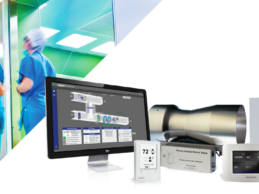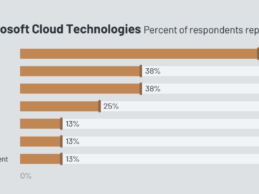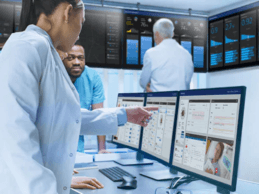What You Should Know:
The Department of Defense and Philips announced a $10M award to expand the readiness of our service members with the Rapid Assessment of Threat Exposure (RATE) AI wellness tool.The first group in this new cohort are theAir Force First Sergeants, who are responsible for overall squadron health and wellness.RATE is an AI algorithm, trained on clinical data from hospital-acquired infections to work with any off-the-shelf wearable to detect possible infection, acting
Read More
Hospital-acquired infections
Minimizing Hospital Infections with Airflow Tech
What You Should Know:
- Phoenix Controls, a leader in precision airflow control solutions for critical environments, announced today it is working with SLD Technology, a manufacturer of fully integrated modular ceiling systems for healthcare facilities, to help create a stable zone of asepsis in operating suites through enhanced environmental controlled airflow.
- The enhanced environmentally controlled solution can help manage hospital-acquired infections (HAI) and further supports the
Read More
KLAS: 7 Key Healthcare Trends in Microsoft Cloud Technologies in 2022
What You Should Know:
- A new report from KLAS focuses on healthcare-specific deployments of Microsoft Cloud Technologies, especially Microsoft Azure, which is receiving strong market interest.
- This study is meant to help organizations considering Microsoft Cloud technologies understand their current use, the overall customer experience, and the impact of the solutions.
Key Healthcare Trends in Microsoft Cloud Technologies in 2022
While still early, healthcare is gaining momentum
Read More
How the Pandemic is Accelerating the Shift to Alternative Care Delivery Models
The COVID-19 pandemic has transformed how we interact with one another, with businesses, and with the world around us. From social distancing to hand sanitation to remote working, its impact on society is immense. And among the various industries that are experiencing significant change as a result of the pandemic, healthcare tops the list. Supply chain disruptions, crowded ICUs and exhausted medical staff has taken a toll on hospitals and clinics — and they’ve had to pivot rapidly to new
Read More
Philips, Dept. of Defense Partner to Develop AI-Algorithm to Detect Infection 48 Hours Before Observable Symptoms
- Philips and the U.S. Department of Defense are teaming up to develop an AI-algorithm to identify infection more than 48 hours before observable symptoms.
- Using large data sets & machine learning across biomarkers, innovative tech can speed time to detection, intervention & treatment, while improving outcomes & reducing the spread of disease.
- Future research is currently being planned to leverage this information as an algorithm to be integrated into a wearable device,
Read More
Wolters Kluwer Harnesses AI to Bridge Data in EHRs to Speed Accuracy of HAIs
With healthcare M&A at an all-time high, many hospitals and health systems are feeling interoperability pains following mergers. Wolters Kluwer is now harnessing AI to bridge data in electronic health records (EHRs) and disparate systems, such as lab results, to improve how organizations identify and report hospital-acquired infections.Real World Data Integration Challenges for ProvidersIntegrating data from disparate EHRs across health systems continues to be a largely manual process. But
Read More
Healthcare Cyber Hygiene: 5 Best Practices to Protect Patient Data
Hospital-acquired infections and data breaches may have vastly different causes, but they have one thing in common—they put healthcare organizations and patients at risk. The “pathogens” which cause data breaches originate both externally and internally—but practicing healthcare cyber hygiene can reduce or eliminate their “infection."Patient data has high value—to others. According to Verizon’s 2017 Data Breach Investigations Report, healthcare has the second highest number of breaches after
Read More







